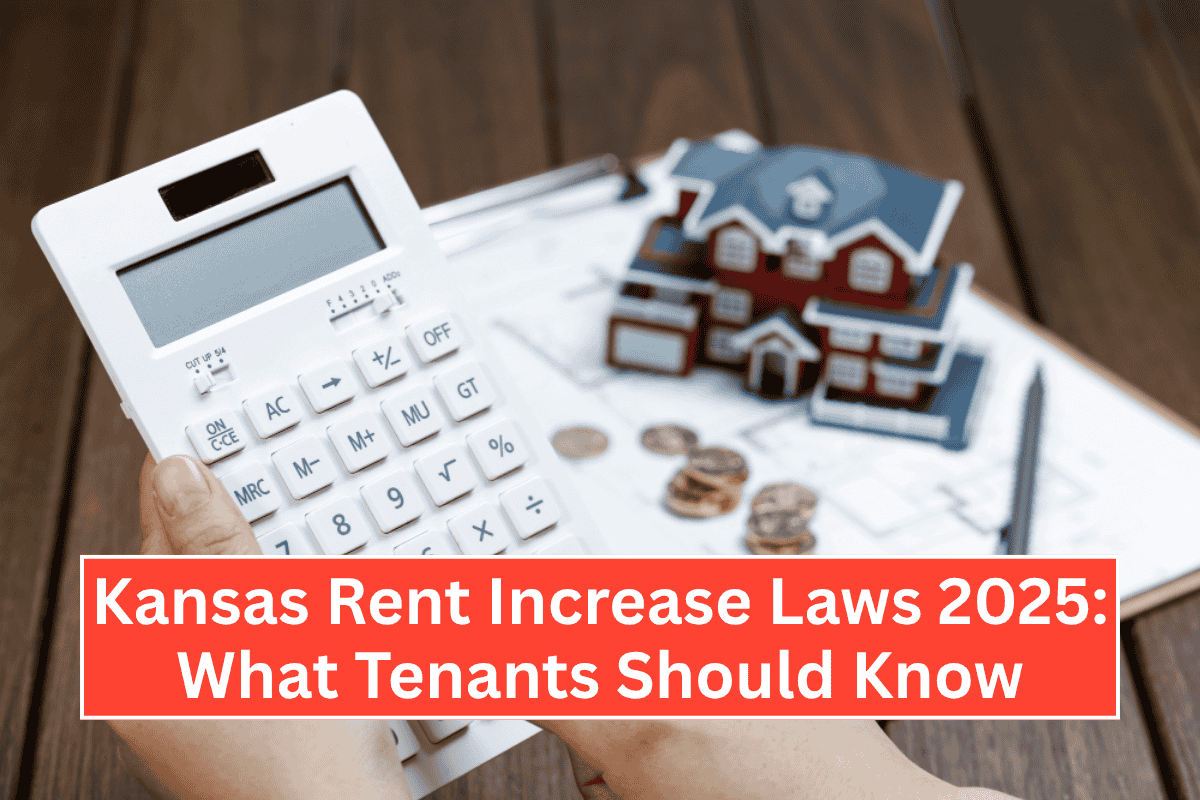If you live in Kansas and rent a home or apartment, it’s important to understand the rules about rent increases. As of 2025, Kansas does not have any statewide rent control laws.
This means landlords can raise rent as much as they want—if they follow certain notice rules. In this article, we’ll explain how rent increases work in Kansas, your rights as a tenant, and what to watch out for.
Does Kansas Have Rent Control?
Kansas does not have any statewide rent control. This means:
Landlords can raise rent by any amount.
There are no percentage limits on how high rent can go.
No rules say rent can only go up once per year.
This gives landlords a lot of freedom, but it also means tenants may face big rent increases without protection.
When Can a Landlord Raise the Rent?
Landlords in Kansas can raise rent at the end of a lease or for month-to-month rentals. But they cannot raise rent during a lease term unless the tenant agrees in writing. Here’s how it works:
Month-to-Month Tenants:
Landlords must give 30 days’ written notice before raising rent.
Fixed-Term Leases (e.g., 12-month leases):
Rent can only be raised after the lease ends. The notice must match the length of the lease—for example, 12 months for a 12-month lease.
How Much Can Rent Go Up?
Kansas law doesn’t say how much rent can be raised. There are:
No caps on rent increases.
No limits on how often rent can be raised.
In most cases, landlords raise rent once a year by about 3–10%, depending on the area. But in Kansas, they could legally raise it more, as long as they give the right notice.
Why Market Prices Matter
Even though landlords have legal freedom, they usually raise rents based on what similar homes in the area cost. If a landlord increases rent too much:
Tenants may move out.
It may be harder to find new renters.
The unit could sit empty for a while.
So most landlords try to keep increases reasonable.
Required Notice for Rent Increases
Written notice is required.
Landlords must give proper notice in writing. Verbal notices are not legal. The notice must include:
The new rent amount.
The date the rent increase starts.
If your landlord does not give proper notice, the rent increase might not be valid.
Your Rights as a Tenant in Kansas
Kansas is a landlord-friendly state, but tenants still have some important rights:
Leases
Month-to-month or fixed-term leases are allowed. Leases over 1 year must be in writing.
Security Deposits
Landlords can charge up to one month’s rent. Deposits must be returned within 30 days of moving out, along with a list of any deductions.
Repairs and Conditions
Landlords must keep rental units safe and livable. Heat, water, and electricity must be working. Repairs must be made in a timely manner.
Discrimination
Landlords cannot refuse to rent based on race, religion, disability, family status, sex, or national origin.
Evictions
Landlords must follow legal steps for evictions. You have the right to challenge unfair evictions in court.
Rent Control Activists in Kansas
Some groups are pushing for rent control laws in Kansas. These include:
Kansas Tenants – A group that supports tenant rights and wants to stop unfair rent hikes.
KC Tenants – Based in Kansas City, this group helps renters fight back against high rents and bad landlords.
These groups argue that rent control could make housing more affordable and stop people from getting priced out of their homes.
Rent Control: Pros and Cons
Here are some of the main arguments for and against rent control:
Pros
Protects tenants from big rent increases.
Helps people on fixed or low incomes stay in their homes.
Encourages stable neighborhoods.
Stops landlords from taking unfair advantage of renters.
Cons
Could lead to fewer new homes being built.
Might reduce landlords’ profits, leading to worse property upkeep.
May make it harder to find housing if landlords pull out of the rental market.
Can be complicated to enforce fairly.
As of 2025, Kansas does not limit how much or how often a landlord can raise rent. While this benefits landlords, it can be tough for tenants, especially those with tight budgets. Rent increases must come with proper written notice—30 days for month-to-month renters and a longer notice based on lease terms for fixed-term tenants.
If you’re renting in Kansas, make sure you understand your lease, keep track of notices, and know your rights. And if you’re struggling with rising rent, local advocacy groups may be able to help.












